9 farmer trials that aim to promote UK pulse production
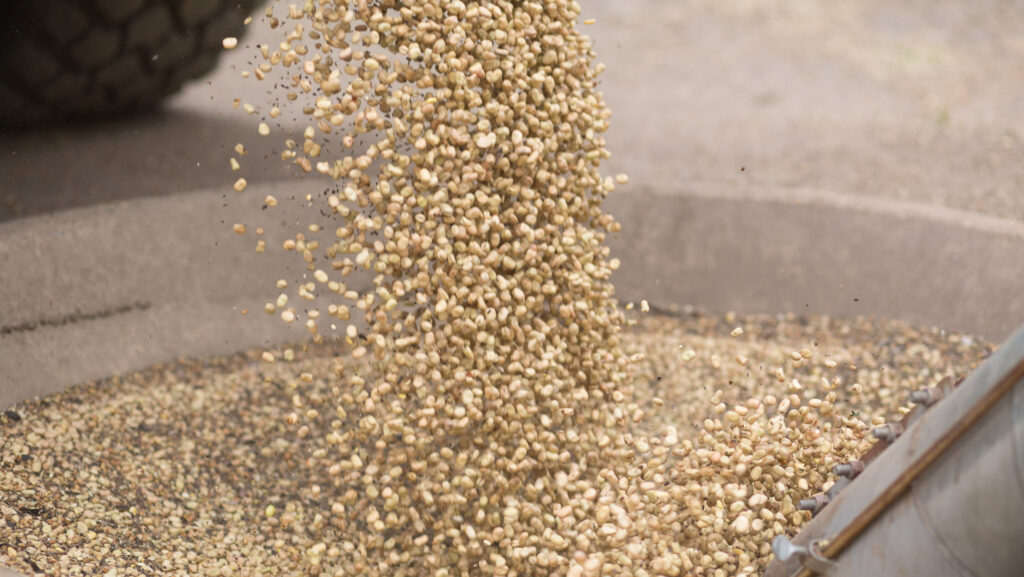 © Tim Scrivener
© Tim Scrivener Nine “pulse pioneers” are being paid to take part in the Nitrogen Efficient Plants for Climate Smart Cropping Systems (NCS) project, which aims to increase the UK pulse area from 5% to 20%.
Here is a rundown of who is involved and why.
See also: 3 risks to assess before drilling winter wheat early
1. Paul Barnes, South Ormsby Estate, Lincolnshire
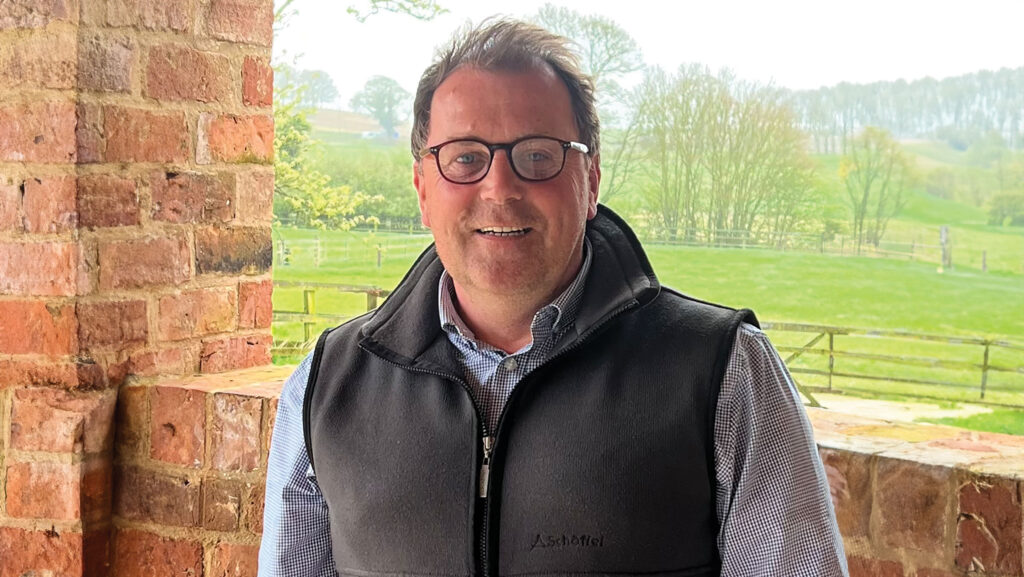
Paul Barnes © NCS Project
Rotations, cultivation and livestock integration are key to the organic farming system at South Ormsby Estate.
This why farmer Paul Barnes is involved with the NCS project, where he is comparing crop and soil traits of spring beans and a spring-sown cereal.
“Having entered previous bean crops in the Adas Bean YEN [Yield Enhancement Network], I feel that joining the NCS project and working alongside a group of pioneers will add to the information capture of my organic perspective,” he says.
Paul’s passion for organic farming goes back to his childhood on the family farm when his grandfather told him to “look after the soil and it will look after you” – a maxim that now forms part of his everyday decisions.
His trial is comparing crop and soil traits of pulses, non-pulses and intercropped crops with spring beans and spring cereals.
He is also carrying out tramline trials of beans treated with two different biostimulants: Vixeran and Utrisha N, which claim to fix atmospheric nitrogen and convert it into a plant-available form.
2. Tom Allen-Stevens, Wicklesham Lodge, Oxfordshire
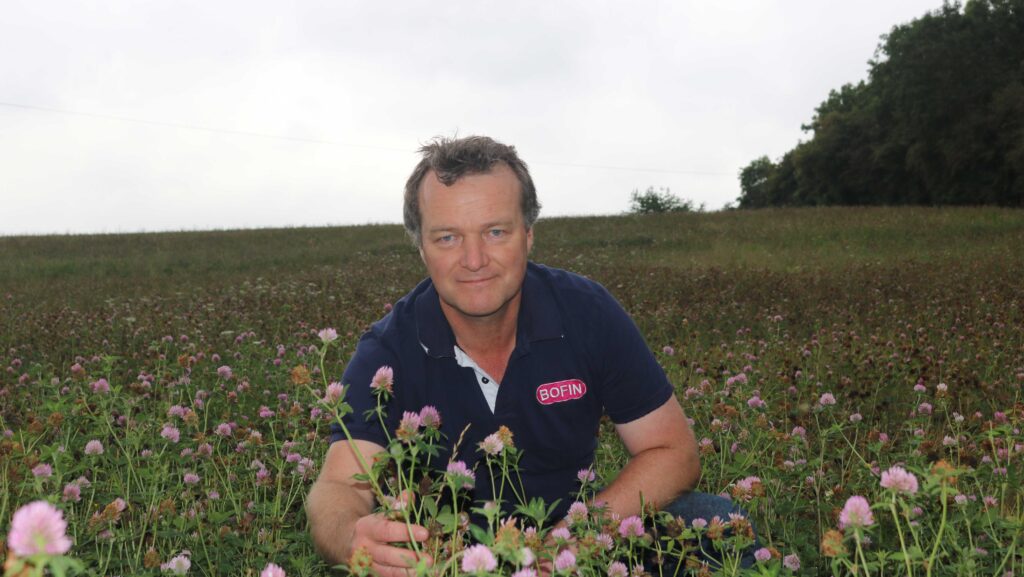
Tom Allen-Stevens © British On-Farm Innovation Network
Blackgrass is the biggest challenge for Oxfordshire arable farmer Tom Allen-Stevens, who is interested to find out how winter beans can help tackle the grassweed, as part of the new project.
Tom admits he has had mixed results from beans in the past, and is yet to be convinced the crop will provide the break crop he needs.
Legume-based stewardship options such as AB15, GS4 and NUM3 are currently being used on the farm to take the worst fields out of production and build soil health.
However, the NCS trial will assess how winter beans stack up against these environmental options in terms of soil health and margin.
A section of the trial is cropped with winter wheat to provide a beans versus cereal comparison.
Like Paul Barnes, Tom is running a tramline trial which is putting Vixeran and Utrisha N to the test.
3. Tim May, Pit Hall Farm, Kingsclere Estate, Hampshire
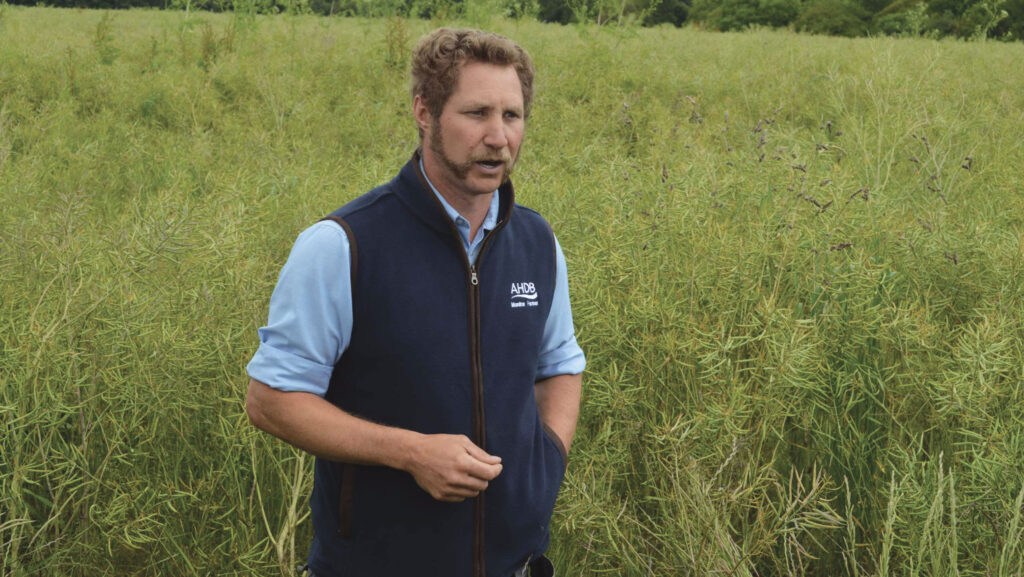
Tim May © MAG/David Jones
Tim May farms an organic arable and dairy unit and currently grows linseed, gluten-free oats and heritage wheats. He is looking to include beans in the rotation to boost fertility and grain protein.
“As an organic farm, we are interested in naturally occurring soil nutrition and see legumes as a pivotal part of this puzzle,” Tim says.
“Anything we can do to improve the reliability and knowledge around legume crops is very welcome, which is why we are keen to support this project.”
The trial is comparing spring beans with winter oats.
Across both crops, Tim has treated two strips with the natural carbon-based fertiliser Citadel, which contains humic extracts, amino acids and trace minerals, to gauge its effect.
4. Diarmid Baird, Scotston Farm, Dundee
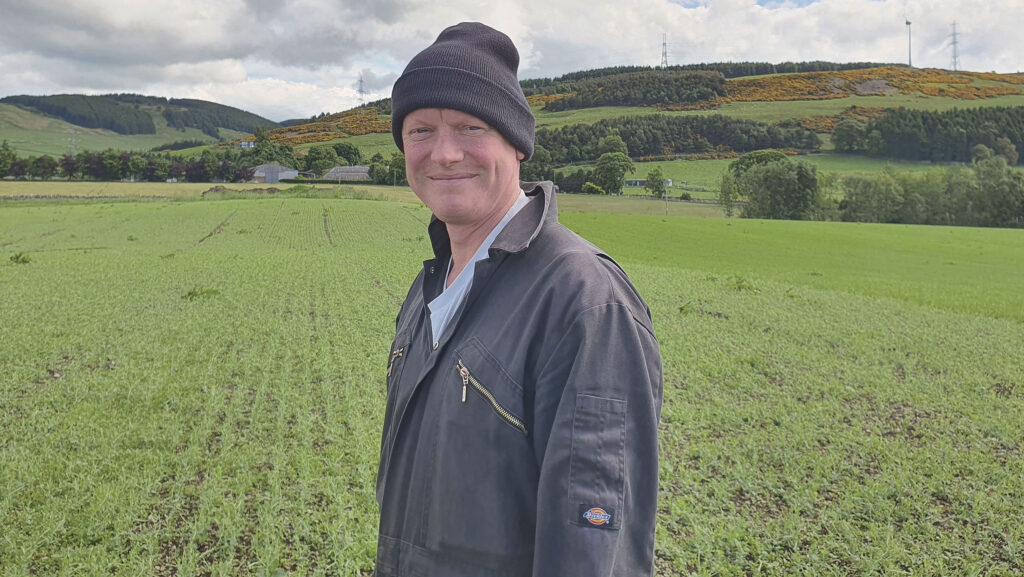
Diarmid Baird © NCS Project
Diarmid Baird has transformed his mixed farming enterprise near Dundee into a model of sustainable agriculture, starting with organic conversion in 1988.
The farm boasts a diverse ecosystem of crops including legumes, grains and specialty crops such as lentils and hemp.
As part of the project, Diarmid is trialling new mixes of intercrops, aiming to monitor the soil and crop quality.
His trial field has been sown with spring beans intercropped with peas, which is being compared to three other mixes: spring peas, spring cereal, and spring cereal intercropped with spring beans.
5. Will Oliver, Osbaston House Farm, Leicestershire
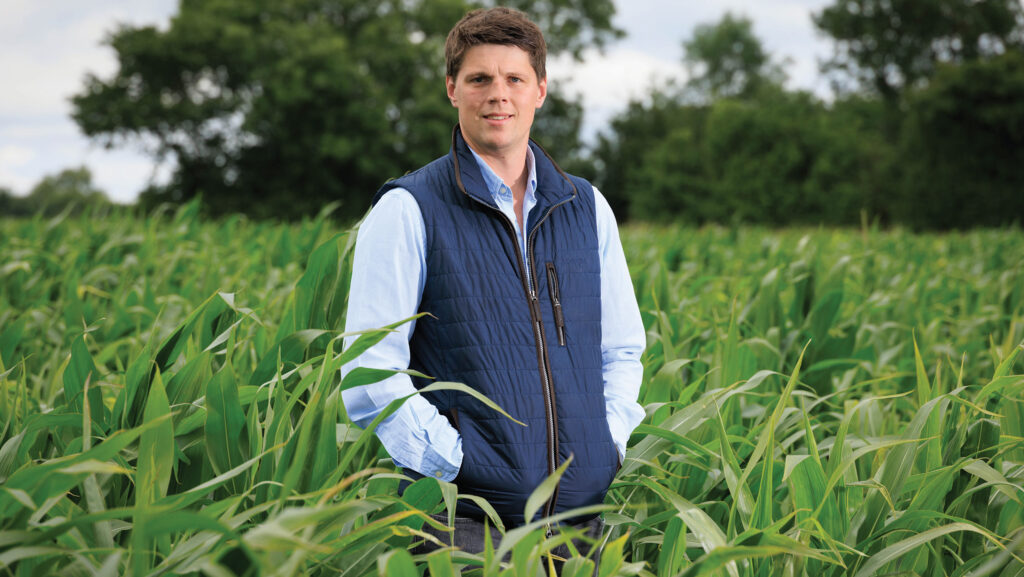
Will Oliver © Tim Scrivener
Arable and poultry farmer Will Oliver is trialling a field of winter beans grown with a carbon-based fertiliser and a fungicide which is new to the farm.
Within the field are two replicated trials made up of three tramlines. The first is trialling the liquid carbon-based fertiliser QLF Boost, which aims to feed soil microbes.
The second is trialling the fungicide Levee (benzovindiflupyr + prothioconazole), while the third trial combines the two treatments.
Will believes beans play an important role in his rotation, working as a soil conditioner and providing an opportunity for a good following crop of winter wheat, with reduced fertiliser requirements.
With beans still a relatively niche crop, he says there is a lot more to learn, which is why he got involved with the project.
6. Anna Pearce, Thornton Farm and Smales Organic Seeds, Northumberland
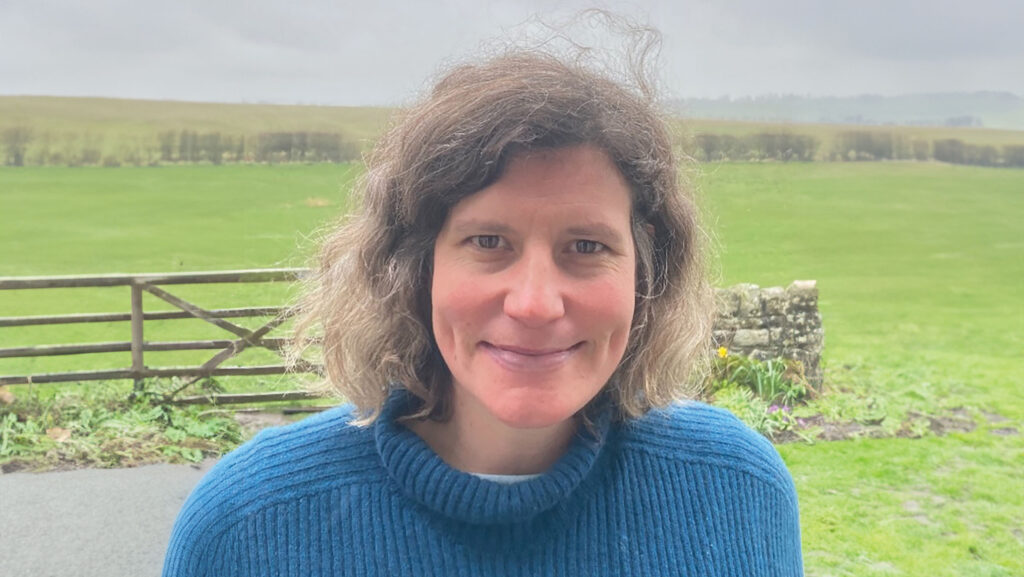
Anna Pearce © NCS Project
Anna Pearce is an organic arable farmer and seed merchant growing wheat, barley, oats, beans and clover for Smales Organic Seeds.
This year marks the first time she is growing winter beans, which forms part of the on-farm trial comparing the crop to a nearby field of spring oats.
Two tramlines treated with a biostimulant are also being assessed.
“I enjoy getting involved in on-farm trials as it is a way of scientifically trialling things,” says Anna.
“We have grown spring beans for a long time and they are an important part of our rotation. It would be great to understand how to grow them consistently better.”
7. John Seed, Woodend Farm, Berwickshire
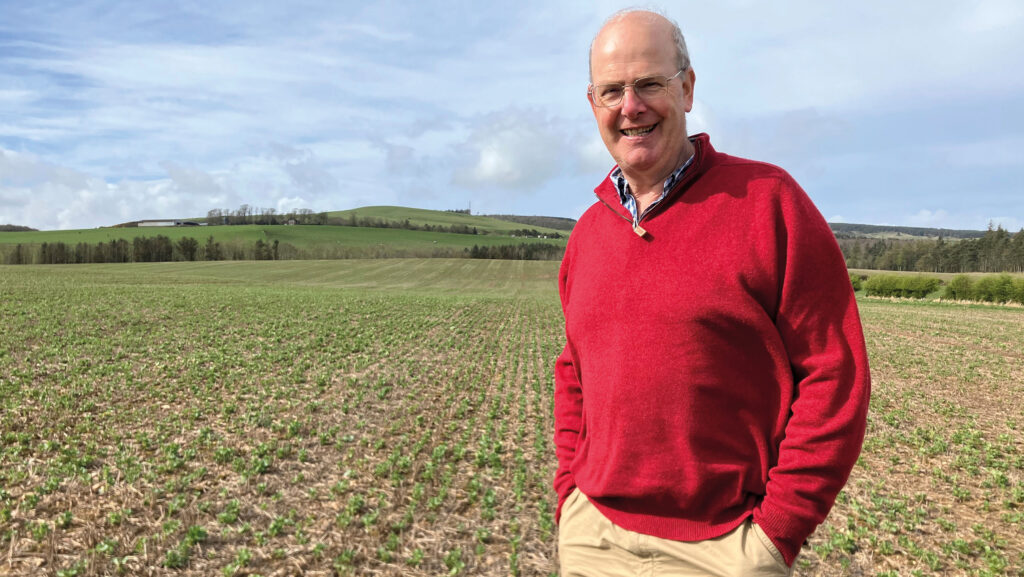
John Seed © MAG/Emma Gillbard
John Seed is trialling the establishment of a vetch and white clover mix oversown using a drone in a crop of spring beans.
The ambition is to fix as much nitrogen as possible to reduce N requirements in the following crop of winter wheat.
John has also sown a tramline of spring beans without clover, a tramline of spring oats and a tramline of spring oats oversown with clover.
This will compare the impacts of pulses, cereals and the addition of vetch and clover on the following winter wheat crop.
“We actively engage in on-farm trials and initiatives like the NCS project to improve our practices,” says John.
8. Rob Waterston, Welford Estate, Berkshire
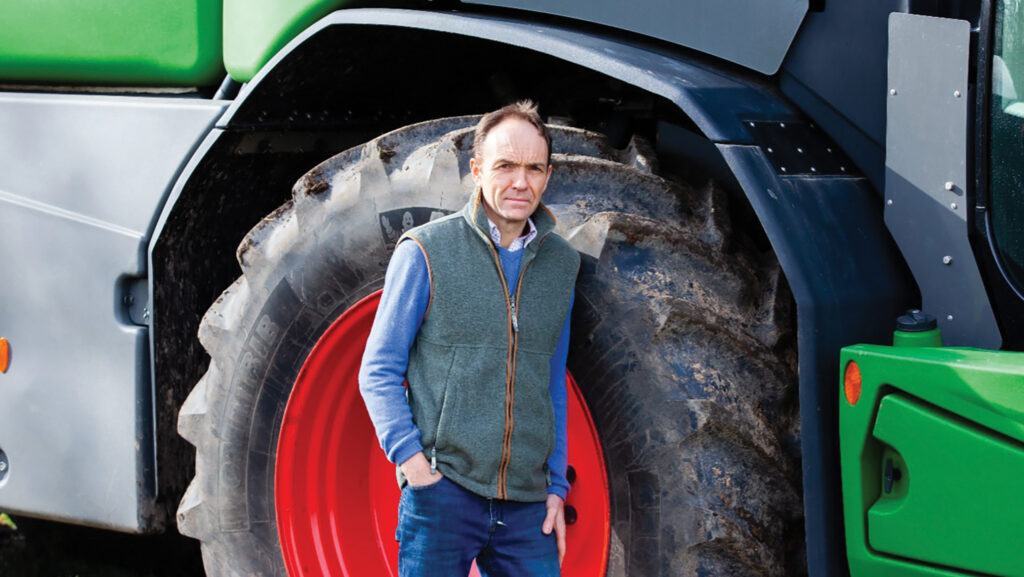
Rob Waterson © NCS Project
Rob Waterston, farm manager of the Welford Estate, hopes that pulses can help him reduce reliance on pesticides and inorganic fertiliser.
The estate has a love-hate relationship with winter beans in terms of reliability and profitability, but Rob recognises the benefits pulses bring to the rotation, such as improved soil health and weed control.
“Being involved with this project might start to unlock the potential of bean production in the UK,” he says.
That is why he is trialling a crop of winter beans and comparing this with a nearby field of spring oats. Two tramlines have also been treated with different nutritional products.
9. Andrew Pitts, Grange Farm, Northamptonshire
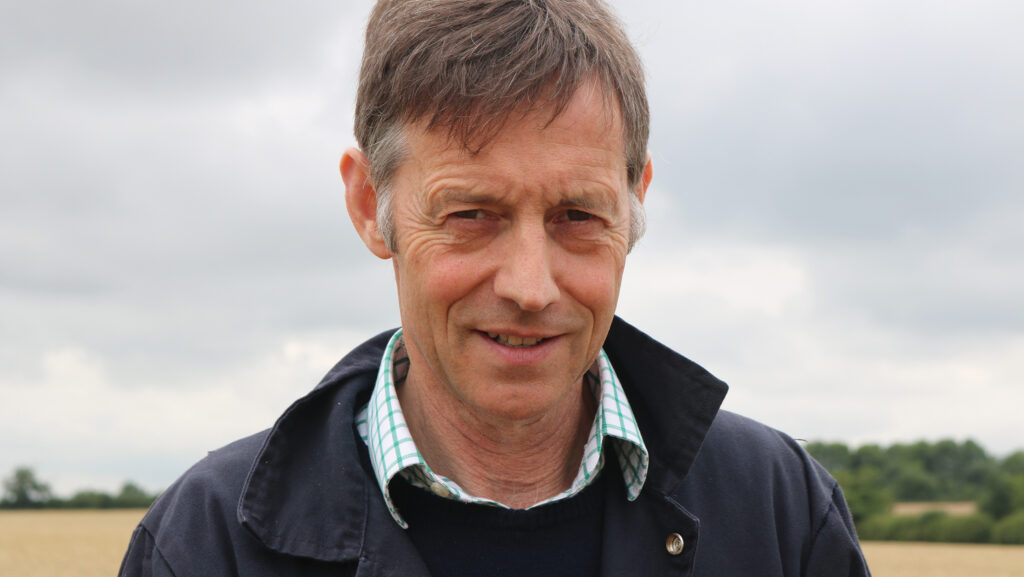
Andrew Pitts © NCS Project
Andrew Pitts has hosted a range of on-farm trials over the years to keep himself up to date with the latest innovations and drive the family business forward.
“The NCS Project fits perfectly into our business and being a pulse pioneer is a great way to test this,” says Andrew, who specialises in high-value seed production.
His trial involves growing a field of marrowfat peas with an area planted to spring oats. Both crops will have a tramline treated with Utrisha N to test its effects and compare yield and quality.
Opportunity for 10 new farmers to get involved
Each of the pulse pioneers is paid £2,500 to take part in on-farm trials and the initiative is seeking 10 more farmers to conduct trials.
Farmers interested in getting involved can find out more at ncsproject.co.uk.
All crops in the trial will be soil sampled and assessed in the Adas Yield Enhancement Network (YEN). The project forms part of a new £5.9m Defra-funded project involving 17 industry partners.
